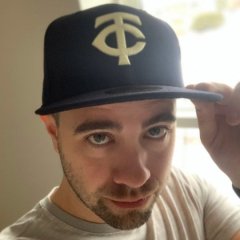
Twins Video
In the Offseason Handbook, we projected that Darvish would get a five-year contract worth $135 million. MLB Trade Rumors predicted six years, $160 million. So it seems there's agreement that $27 million annually sounds about right, and given the competitive market for his services, the right-hander shouldn't have trouble getting someone to offer it.
Who knows, perhaps the Twins will outbid a number of large-market clubs and dangle the most money flat-out. I think we can all agree that's not very likely. This is a guy that pretty much every heavyweight contender would love to add. Even if Levine gets the sign-off on an offer in the $150 range (clearly a monumental IF) he could still easily be surpassed by another team that needn't concern itself with adding another 10 or 20 million to sweeten the pot.
So if we operate under the assumption that Minnesota won't be able to match other suitors in terms of pure dollars, how might they get creative and entice him to sign here for less money?
Sure, the Twins have some factors working in their favor. The bond between Darvish and Levine appears to be real. Any outside pitcher has to like the idea of throwing in front of Byron Buxton. And I've heard that the 31-year-old hurler doesn't necessarily gravitate toward playing in a big city.
But, with prized free agents, sentimentality rarely wins out. The Twins need to figure out some tangible methods for overcoming heftier bankrolls and persuading Darvish.
I see a few different avenues they could try:
Opt-Out Clause
These are becoming more and more common in contracts for top free agents. A lot of general managers don't like them because they're extremely one-sided, and offering one now would be a first for the Twins, but I think it'd almost be an obligatory component of any contract for Darvish that doesn't approach $30M/year.
I'm sure Minnesota won't be the only team willing to include an opt-out clause, but maybe they're willing to let him trigger it earlier? Such a scenario would mitigate Darvish's risk in taking a smaller deal, because if he significantly out-pitches his pay he can hit the market again in two or three years, still shy of 35.
It's not ideal for the Twins because they could easily lose Darvish right in the middle of a theoretical prime window of contention. But if that's what it takes to get him, you do it without a second thought.
Deferred Money
Here's an outside-the-box idea. Many baseball fans will immediately envision a Bobby Bonilla scenario where the Twins are paying Darvish a few million bucks in 2065, but Bonilla's infamous deal with the Mets is not the only example of this framework in action.
In January of 2016, when the Baltimore Orioles signed slugger Chris Davis to a seven-year, $164 million contract, they deferred $42 million of it. He receives $3.5 million every year from 2023-32, and then $1.4 million annually through 2036.
This reduced Baltimore's actual commitment on the ledgers to $119 million over the seven years, or $17 million AAV. The deferral is interest-free, which works in the club's favor, but Davis can look forward to steady income well into his retirement.
That kind of distribution would make Darvish more palatable for the organization's bottom line. And while a perpetual $3-5 million payroll penalty for a decade-plus would hurt, the Twins are more than accustomed to carrying dead salary weight. That's a relative drop in the bucket. For a franchise-altering acquisition like this, it's worth considering.
Personalized Experience
We're veering back toward intangibles here to some extent, but not entirely. The most pervasive trend in business today is offering personalization. If you can tailor your solution to the specific needs and wants of the customer, you greatly increase your chances of closing a sale.
To stick with that transactional metaphor, if the Twins are marketing themselves to Darvish, they may not be able to offer the best price, but could woo him with the most customized experience.
Consider this: Chris Gimenez, who was Darvish's personal catcher in Texas, has been actively recruiting the righty to Minnesota despite his status as a free agent. Minnesota could easily bring Gimenez back if it'd be a draw. The Twins also recently signed Masa Abe, a Japan native who served as a trainer on the country's 2017 WBC team, as an assistant on the staff.
With Gimenez indicating that Darvish was "not necessarily a fan" of some of the team rules during his time with the Rangers, Minnesota looks to have an experiential advantage over at least one other known suitor. And in fact, given the intel they have on Darvish's unique preferences, Levine and Co. have the ability to really appeal to the free agent on a deeper level.
Money talks. But in the case of Darvish, it might not be alone at the podium. The Twins will probably have to hope that's true if they wish to defy the odds and win the ace they need.
MORE FROM TWINS DAILY
— Latest Twins coverage from our writers
— Recent Twins discussion in our forums
— Follow Twins Daily via Twitter, Facebook or email
— Become a Twins Daily Caretaker






Recommended Comments